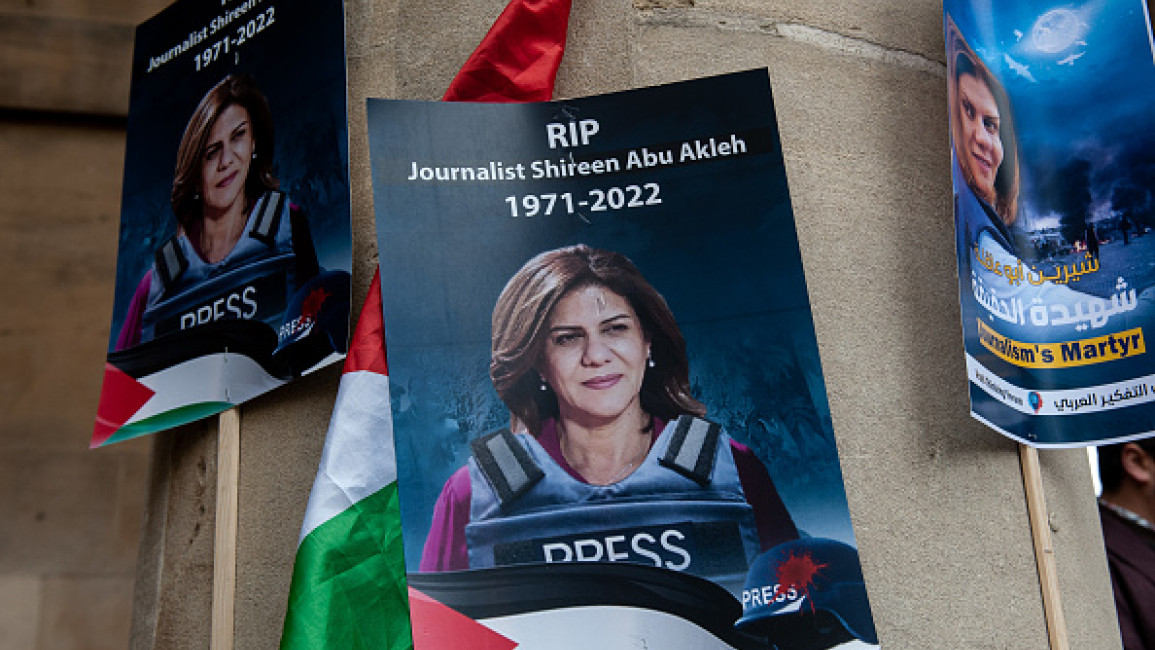
Within Israel's flawed legal system, Palestinians will never find justice

An Israeli soldier who fatally shot a Palestinian toddler last month will not face disciplinary action. Israeli soldiers involved in the death of an 80-year-old Palestinian-American last year will not face criminal prosecution.
The results of these probes are par for the course, human rights organisations say, when impunity is the norm in Israel’s military law enforcement system.
According to data collected by Israeli human rights organisation, Yesh Din, between 2017-2021, the odds of a complaint leading to an indictment against a soldier for harming a Palestinian is under 1 per cent and only 4.4 per cent of cases opened resulted in indictments.
“The military law enforcement system, time and time again, proves that its role is not to actually seek justice or to hold soldiers accountable for crimes against Palestinians, but rather just to act as a facade, to actually hide these crimes,” Dan Owen, a researcher at Yesh Din, told The New Arab.
"The military law enforcement system, time and time again, proves that its role is not to actually seek justice or to hold soldiers accountable for crimes against Palestinians, but rather just to act as a facade"
A flawed system
Human rights organisations have long attested that Israel’s military legal system serves as a whitewashing tool allowing soldiers to evade responsibility.
According to a 2016 report from Israeli human rights organisation, B’Tselem, the Israeli military’s law enforcement system, at its core, doesn’t function as a proper mechanism for justice.
It only investigates incidents where soldiers are suspected to have acted against given orders, instead of the orders themselves, thereby only targeting lower-ranking officers.
“These investigations aren't looking at criminal accountability at the highest levels where they belong, those who give the orders, sanction unlawful use of force, those who approve building of settlements, which are war crimes,” Human Rights Watch’s Israel and Palestine director, Omar Shakir, told The New Arab.
“[There’s] no serious investigation of the severe policies and practices that entrench this illegality.”
Additionally, investigators rarely attempt to collect external evidence, instead relying on statements.
“At witness statement interviews, investigators function more like stenographers taking dictation than staff tasked with uncovering the truth,” B’Tselem wrote in its report.
Ultimately, most investigations are closed for “absence of guilt” or “absence of evidence,” while in other circumstances no investigation is launched due to “absence of guilt” or on the grounds that Palestinian fatalities occurred during “combat situations.”
Owen from Yesh Din said that conducting investigations - even faulty ones - allows Israel “to then go out to the world and say that it is actually doing something about this”.
In a way, Israel achieves the appearance of accountability, even if no real accountability exists.
Israeli law protecting Israel
Haitham al-Tamimi described Israel’s investigation into his son’s killing “as another level of the crime”.
“We view this initial investigation as a mockery being done by Israel towards us,” al-Tamimi told TNA. Yet he and his family expected this outcome.
"[Israeli] law is going to protect the soldier,” al-Tamimi said. “We know that because of previous crimes that happened in the country."
"The odds of a complaint leading to an indictment against a soldier for harming a Palestinian is under 1 per cent and only 4.4 per cent of cases opened resulted in indictments"
Many Palestinians often don’t file complaints due to the clear lack of accountability, not wanting to participate in their oppressors’ system, or out of fear of retaliation. And often, filing complaints is inaccessible to Palestinians.
Palestinians can’t directly file complaints with the Military Police Investigations Unit, so instead human rights organisations or attorneys must file for them.
Victims can file a complaint through a District Coordination and Liaison Office in the occupied West Bank, but these complaints are often significantly delayed when being transferred to investigative authorities.
“Palestinians have seen decades of impunity, and that fuels deep mistrust with the military justice system,” Shakir said.
Since relying on Israel’s justice system is regarded as futile, human rights experts suggest turning to international courts.
Yet even internationally, Palestinians feel slighted, especially as Al Jazeera’s request to the International Criminal Court (ICC) to investigate the killing of Palestinian journalist Shireen Abu Akleh has stalled.
This, coupled with the ICC’s current probe into the “Situation in Palestine” losing steam while the ICC’s involvement in Russia’s invasion of Ukraine gains traction, has left many Palestinians feeling as if the world has neglected them.
“We have some disappointment from the international court system and international organisations, but we'll try to keep going on even if just on the media level, because we believe [our son was] a victim of barbaric occupation,” al-Tamimi said.
“We won’t give up trying to fight for his right.”
Jessica Buxbaum is a Jerusalem-based journalist covering Palestine and Israel. Her work has been featured in Middle East Eye, The National, and Gulf News.
Follow her on Twitter: @jess_buxbaum



